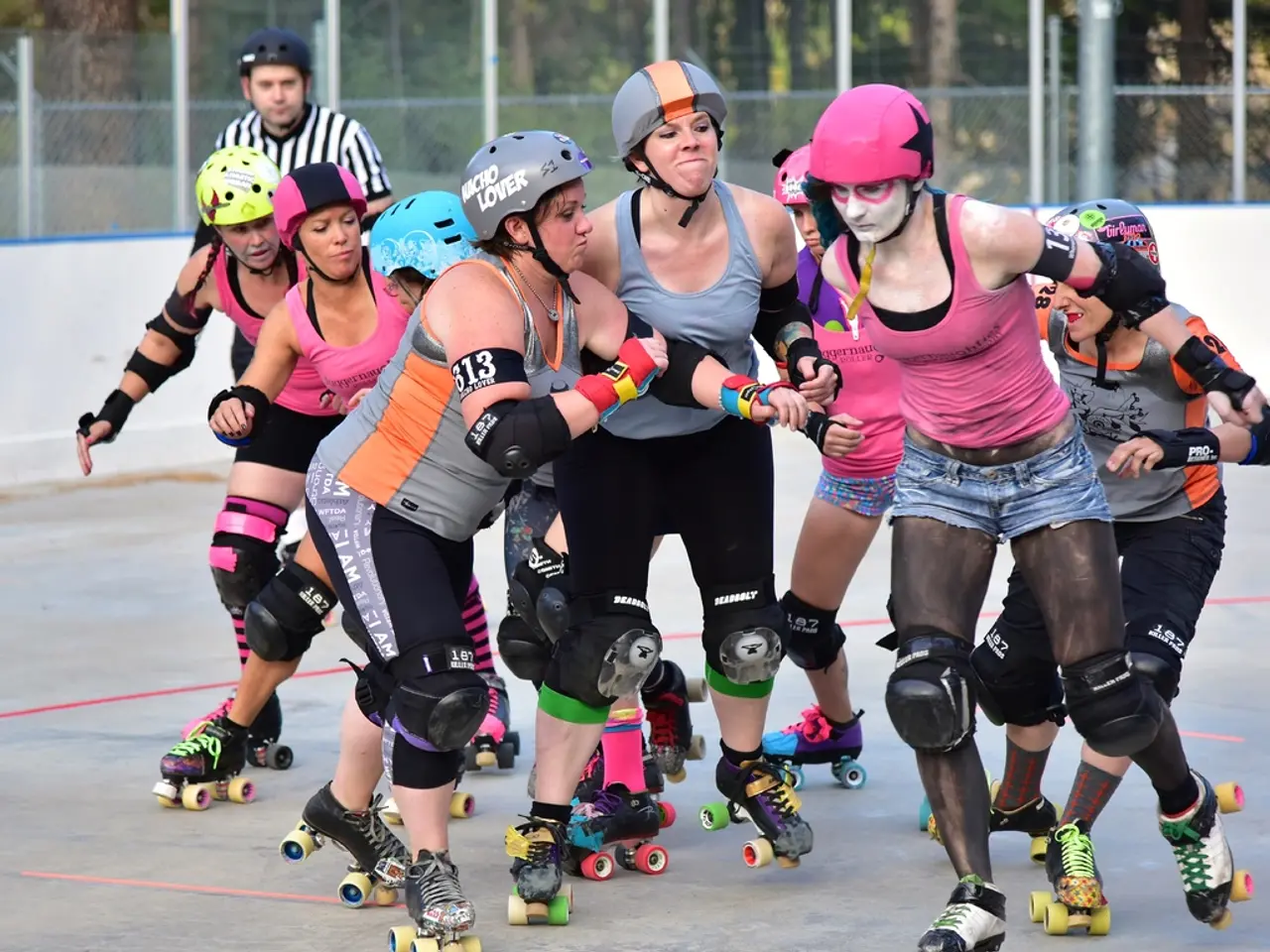Transgender athletes prohibited from participating in women's sports by US Olympic and Paralympic authorities.
In the realm of sports, the status of transgender athletes in women's competitions has been a subject of significant debate and legal challenges. This situation was marked by a series of restrictions and policies instituted during the administration of former U.S. President Donald Trump.
Following Trump's signing of the "Keeping Men Out of Women's Sports" order in February 2020, the landscape of transgender participation in sports has been characterized by legal and institutional hurdles. One of the key developments occurred in 2025 when the University of Pennsylvania agreed to ban transgender women from competing in women's sports, aligning with the Trump-era interpretation of Title IX, a law against sex discrimination in education. This decision followed an investigation by the Department of Education's Office for Civil Rights (OCR) and a settlement that saw Penn committing to using biology-based definitions for athletic participation, revising records, and apologizing to cisgender athletes who felt disadvantaged by the prior inclusive policies.
At the state level, since 2020, 27 states have enacted bans on transgender youth participating in school sports consistent with their gender identity. These bans often include invasive sex testing procedures and have led to allegations of discrimination and harassment of transgender athletes. The issue has escalated to the U.S. Supreme Court, which in July 2025 granted certiorari to review cases challenging the constitutionality of these state bans. The Court is examining whether categorical exclusion of transgender girls from female sports teams violates the Equal Protection Clause.
The Trump administration’s policies influenced the Department of Education’s position in these matters, leading to actions such as the OCR investigation into Penn University's compliance with Title IX. However, the Supreme Court’s forthcoming rulings will be pivotal in resolving the legality of bans that originated or intensified during and after that administration.
The United States Olympic & Paralympic Committee (USOPC) has updated its policy to align with the executive order signed by Trump. The USOPC President Gene Sykes and CEO Sarah Hirshland referenced the order in a memo to the Team USA community, stating that the organisation has an obligation to comply with federal expectations due to its status as a federally chartered organisation. The USOPC is collaborating with various stakeholders, including the IOC, IPC, and NGBs, to ensure fair and safe competition environments.
Critics argue that the order infringes on the rights of a tiny minority of athletes. Trump himself stated he would not allow transgender athletes to compete in the Los Angeles Olympics in 2028. The executive order also instructs the State Department to pressure the International Olympic Committee (IOC) to change its policy, which currently allows trans athletes to compete under general guidance preventing any athlete from gaining an unfair advantage.
In summary, the status of transgender athletes in women’s sports remains contested and regionally variable, with federal courts now actively reviewing the constitutionality of exclusionary policies shaped during and after the Trump era. Universities and states have adopted more restrictive policies, but these face ongoing legal challenges that may redefine the landscape soon.
[1] New York Times [2] Washington Post [3] ABC News [4] NPR
- The New York Times reports that the ongoing debate about transgender athletes in women's sports has resulted in a series of policies and legal challenges, with 27 states enacting bans on transgender youth participating in school sports, as of 2025.
- According to the Washington Post, the Department of Education's Office for Civil Rights (OCR) conducted an investigation into Penn University's compliance with Title IX after they announced a ban on transgender women competing in women's sports in 2025.
- ABC News highlights the Supreme Court's role in resolving the legality of bans on transgender athletes, as they granted certiorari to review cases challenging the constitutionality of state bans in July 2025.
- NPR features arguments from critics who claim that the Trump-era executive order infringes on the rights of a small minority of athletes, while referring to Trump's statement that he would not allow transgender athletes to compete in the 2028 Los Angeles Olympics.
- The United States Olympic & Paralympic Committee (USOPC) has updated its policy to align with the executive order signed by Trump, according to a memo from USOPC President Gene Sykes and CEO Sarah Hirshland.
- General news sources such as ABC News, NPR, and the Washington Post are covering the complex and evolving issue of transgender athletes in women's sports, with federal courts actively reviewing the constitutionality of exclusionary policies shaped during and after the Trump era.




